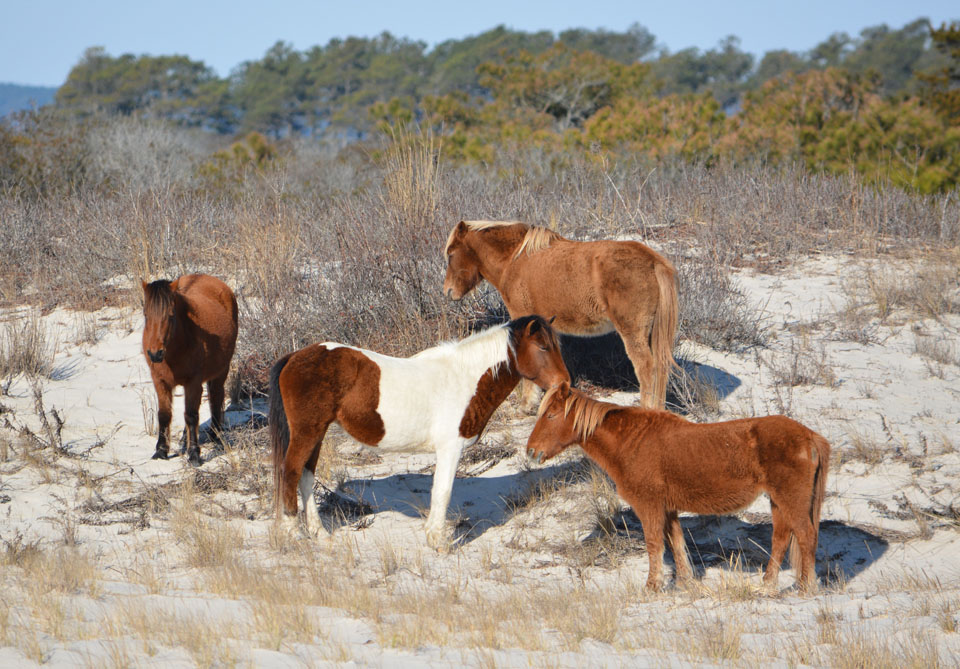News Release
You are viewing ARCHIVED content published online before January 20, 2025.
Please note that this content is NOT UPDATED, and links may not work. For current information,
visit https://www.nps.gov/aboutus/news/index.htm.

NPS
|
Subscribe
|
Contact: Liz Davis, 410-629-6087
Berlin, MD - The National Park Service has completed its March 2018 population census of the wild horses on Assateague Island. The total population of the Maryland herd is currently at 82 horses, which is well within the ideal population range. The herd currently includes 21 stallions and 61 mares, and at least one mare is known to be pregnant at this time. There have been a total of 6 horse deaths documented in 2018 so far, including 5 mares (T3L, N6EL, M17GM "Dee's Heart", X15P, T5AFP "AR Arianna" and 1 stallion (N6BMS "Llama Boy") . All those lost were mature, aged individuals having lived out their full lives within the national seashore.
The National Park Service completes a full census of the horse population in Maryland six times per year, in February, March, May, July, September, and November. Managed as a wildlife population, the Assateague horses are free to roam over approximately 27 miles of the barrier island and can be difficult to find at times. During each census, horses are identified by their distinguishing characteristics, mapped and counted. Individual horses that are not observed during multiple census periods are presumed dead. The purpose of the census is to monitor the population dynamics of the horse herd in support of the long term fertility control program that was initiated in 1994.
The National Park Service completes a full census of the horse population in Maryland six times per year, in February, March, May, July, September, and November. Managed as a wildlife population, the Assateague horses are free to roam over approximately 27 miles of the barrier island and can be difficult to find at times. During each census, horses are identified by their distinguishing characteristics, mapped and counted. Individual horses that are not observed during multiple census periods are presumed dead. The purpose of the census is to monitor the population dynamics of the horse herd in support of the long term fertility control program that was initiated in 1994.
Last updated: April 7, 2018
